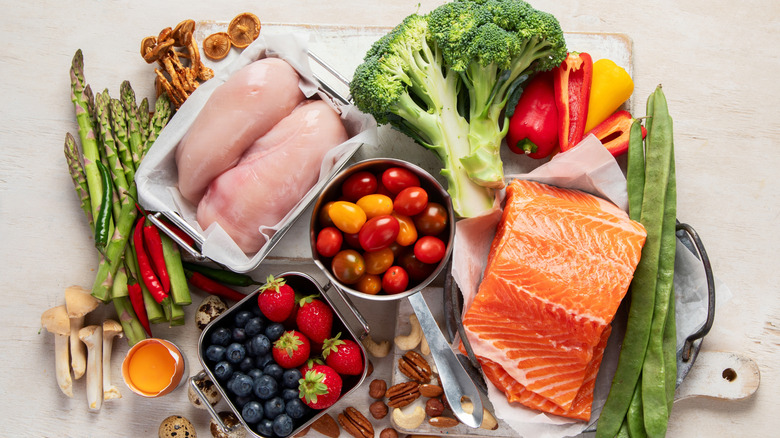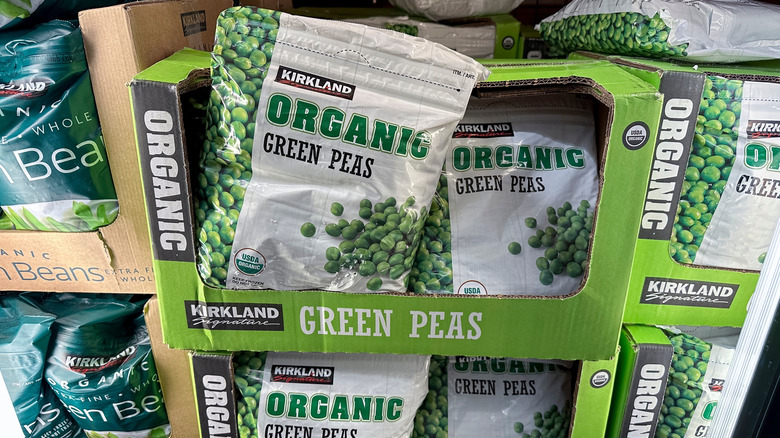The Grocery Chain That Sells More Organic Produce Than Whole Foods
In Tasting Table's list of the absolute best grocery store chains for organic shopping in the U.S., Whole Foods is ranked first. But when it comes to the organic produce aisle, one grocer has Whole Foods' sales beat and, if you can believe it or not, it's Costco. With everything from bargain flat screen TVs to packs of holiday cookies, organic produce might not be the first thing that comes to mind when you think about Costco. But a transcript from an earnings call with the chain's chief financial officer, Richard Galanti, was reported in Huffpost as stating that the retailer did more than $4 billion in sales of organic produce. This surpassed Whole Foods' results, which BMO Capital estimated to average out at about $3.6 billion per year in 2015.
So, while Whole Foods might be considered the gold standard for organic food shopping, Costco is doing numbers on its organic sales. Representing a fraction of the chain's $114 billion in total annual sales, Galanti himself said that Costco's trade in organic food started small before gaining steam. It reached $6 billion in sales in 2024 to make it the largest retailer of organic produce in the U.S., representing a huge number in terms of the total organic food industry. In fact, with about $70 billion in total industry sales, that $6 billion means that nearly 10% of all organic food sales are from Costco. It also means that organic food — once considered a hippy, health-fad category reserved for co-ops and farmers markets — has officially hit the mainstream market, and there's only more to come.
Organic produce has gone mainstream, and Costco is cashing in
The mainstreaming of the once niche category of organic foods — grown without pesticides or synthetic fertilizers – can be largely held up to generational factors. According to a report from The Organic Trade Association, organic foods are becoming increasingly more important among younger shoppers, with an average increase of importance of 36% among Millenials and Gen Zs. According to Richard Galanti, those are two key demographics that Costco has been unintentionally attracting since 2017 — citing its focus on organics and couponing as appealing drivers. But, whether intentional or not, the trends are certainly encouraging.
Not only does the mainstreaming of organic foods mean that there are more pesticide-free fruits and vegetables out there, as well as organically-produced meats and dairy products, it also means customers no longer need to venture to specialty (and often more expensive) grocery stores for them. Rather, they can stock up on Costco organic items like fresh produce, dried fruits, frozen vegetables, and prepared sauces and salsas, while bulk-buying other necessities. Galanti also notes that the mainstream organic movement has potential cost-reducing effects. While organic produce prices may hike in the onset of the stress that wholesale stores will put on the already limited supply, Costco has the potential to strengthen it.
The number of organic farms has been growing since the 1990s to support this growing market, but Galanti told The Seattle Times that Costco is "pretty good at getting out there and working with suppliers [...] to commit more to it." That, of course, will come with economic and environmental benefits for everyone involved.

